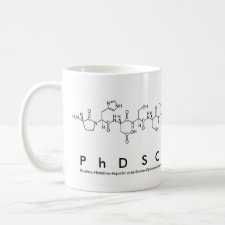
Authors: Liang RN, Zhao Y, Su Y, Qin W
Article Title: Determination of hydroxylated polychlorinated biphenyls by offline solid-phase extraction-liquid chromatography-tandem mass spectrometry using a molecularly imprinted polymer as a sorbent for sample preconcentration.
Publication date: 2015
Journal: Talanta
Volume: 144
Page numbers: 115-121.
DOI: 10.1016/j.talanta.2015.05.064
Alternative URL: http://www.sciencedirect.com/science/article/pii/S0039914015300217
Abstract: Hydroxylated polychlorinated biphenyls (OH-PCBs) can be detected by liquid chromatography-mass spectrometry coupled to solid-phase extraction (SPE) using a dummy molecularly imprinted polymer (DMIP) as a sorbent. The DMIP is prepared by using an analogue of OH-PCBs (i.e., 4, 4-dihydroxybiphenyl) as a dummy template, to avoid the leakage of the target molecules. The DMIP-SPE sorbent shows good recoveries for OH-PCBs at pH 11 due to the charge-assisted hydrogen bondings between OH-PCBs and the DMIP. It has been found that the DMIP is much more effective and selective than the traditional C18-SPE method. The sample pH, polymer dosage, elution solvent and volume have been optimized for higher recoveries. Under the optimum experimental conditions, OH-PCBs can be detected in the linear concentration range of 0.05-1.0 pM, with the detection limits ranging from 11 fM to 82 fM for 4'-OH-CB 9, 4'-OH-CB 30, 4'-OH-CB 61, 4'-OH-CB 106 and 4'-OH-CB 112. The proposed system has been successfully applied to the determination of trace OH-PCBs in spiked water samples with recoveries in the range of 89-110%
Template and target information: 4,4-dihydroxybiphenyl, dummy template, Hydroxylated polychlorinated biphenyls, OH-PCBs
Author keywords: Dummy molecularly imprinted polymers, Hydroxylated polychlorinated biphenyls, Liquid chromatography mass spectrometry, Solid-phase extraction



Join the Society for Molecular Imprinting

New items RSS feed
Sign-up for e-mail updates:
Choose between receiving an occasional newsletter or more frequent e-mail alerts.
Click here to go to the sign-up page.
Is your name elemental or peptidic? Enter your name and find out by clicking either of the buttons below!
Other products you may like:
 MIPdatabase
MIPdatabase









